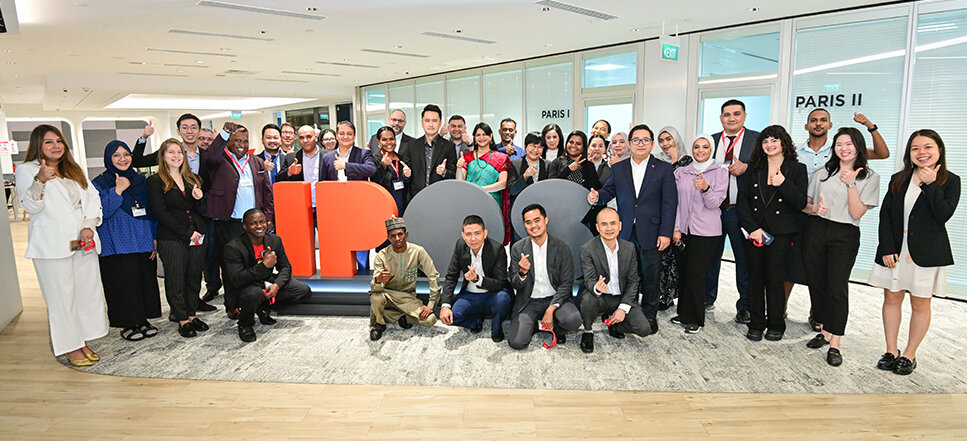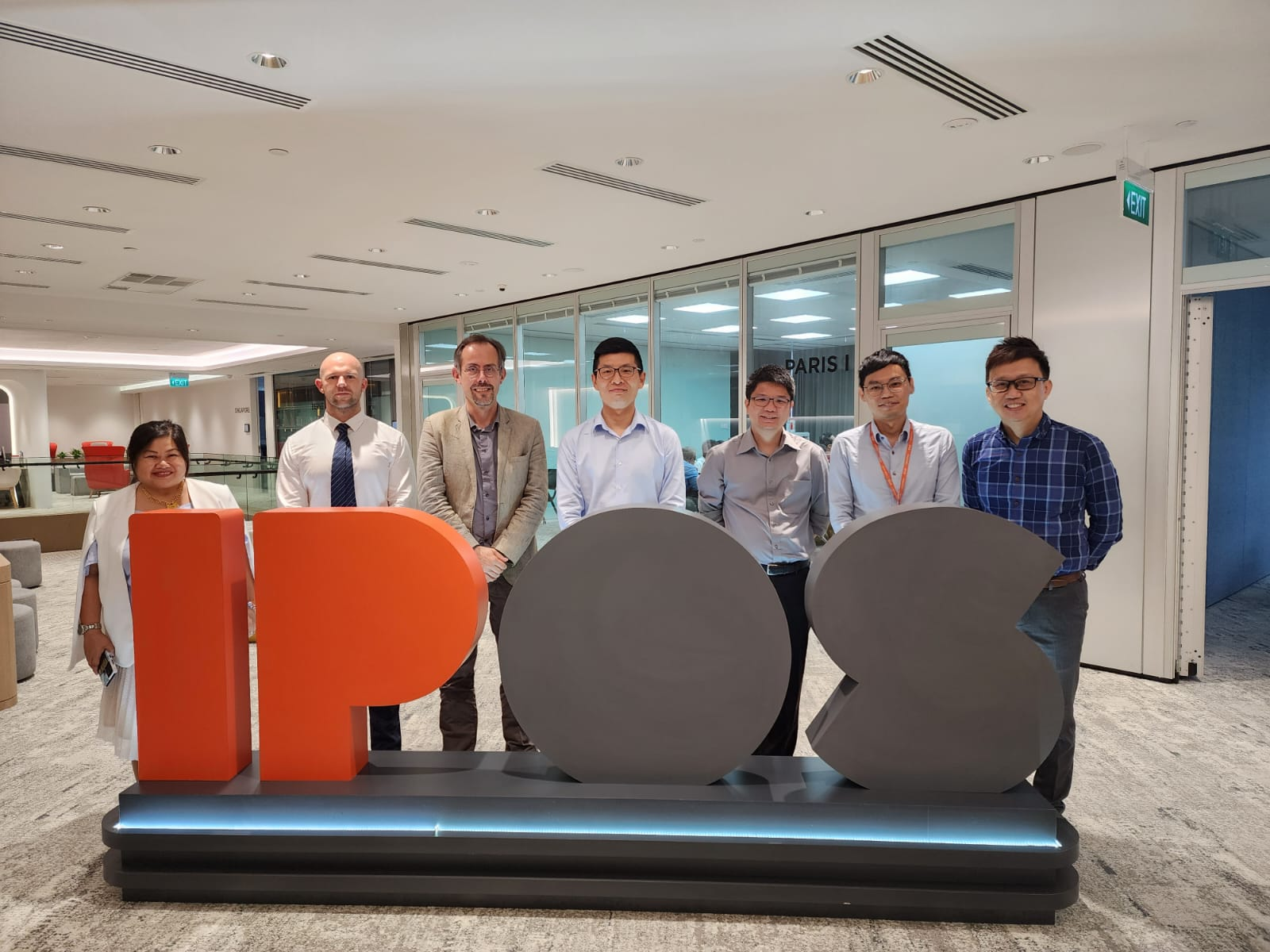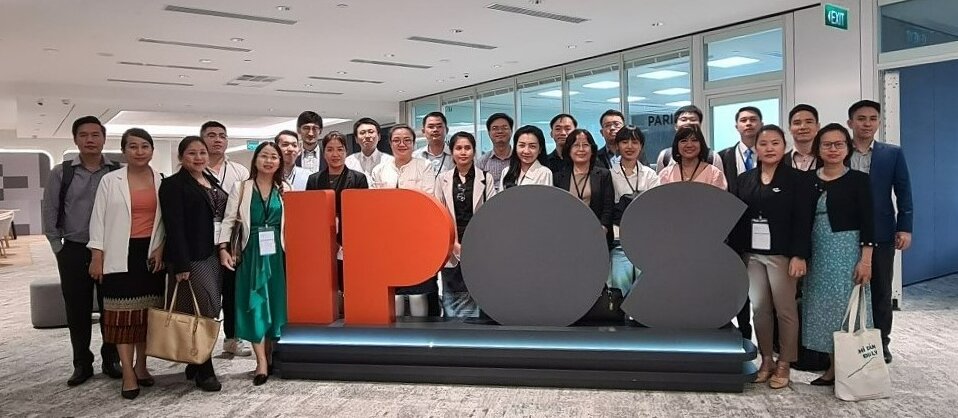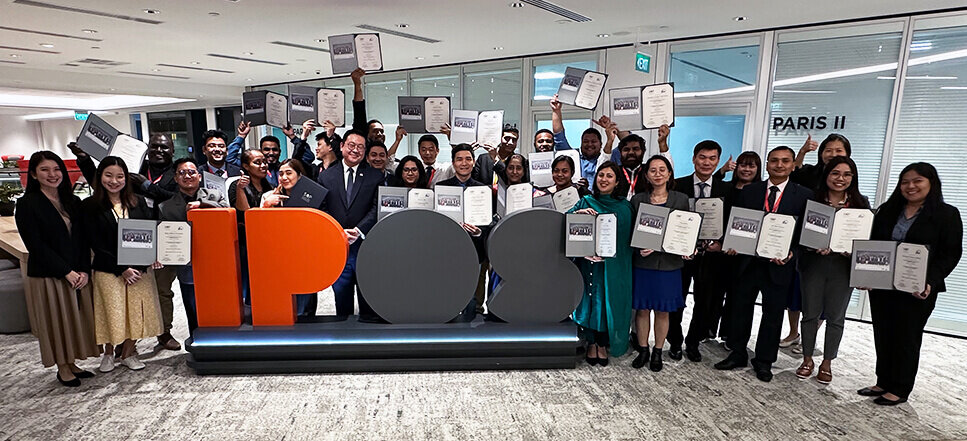
MFA x JSPP21 - Fostering the Digital Economy through Artificial Intelligence and Data Governance

IPOS International recently ran a Ministry of Foreign Affairs Japan-Singapore Partnership Programme for the 21st Century (MFA-JSPP21) with a focus on AI and Data governance in the digital economy.
In this programme, participants gain insight into the intricacies of navigating challenges and regulatory frameworks within a digital economy. They also learnt about the current developments of AI technology and AI applications, alongside exploring the legal challenges in AI Adoption and Data transfer essential for thriving in the digital landscape. Expert trainers, including representatives from the Personal Data Protection Commission (PDPC), shared Singapore's progressive approach to PDPA, cross-border data flow, and AI governance. Additionally, the Japan International Cooperation Agency (JICA) trainer offers valuable perspectives on AI governance practices observed in Japan.
During the programme, MFA hosted an official lunch for the participants and IPOS International representatives at Tiffany’s Café in Furama City Centre where they try local delights and desserts such as laksa, durian pengat and kuehs.
Participants also visited the CISCO-NUS Accelerated Digital Economy Corporate Laboratory, Mastercard Innovation Centre and IMDA-AWS Joint Innovation Centre to enhance their learning experience. At the CISCO-NUS Accelerated Digital Economy Corporate Laboratory, participants had the opportunity to test a solution using a continual learning framework for LLMs that mimics human learning, adding a fun and hands-on dimension to their learning journey.
See the learning experiences for this programme captured by MFA on their SCP Facebook Page at Singapore Cooperation Programme and JSPP21 programme.
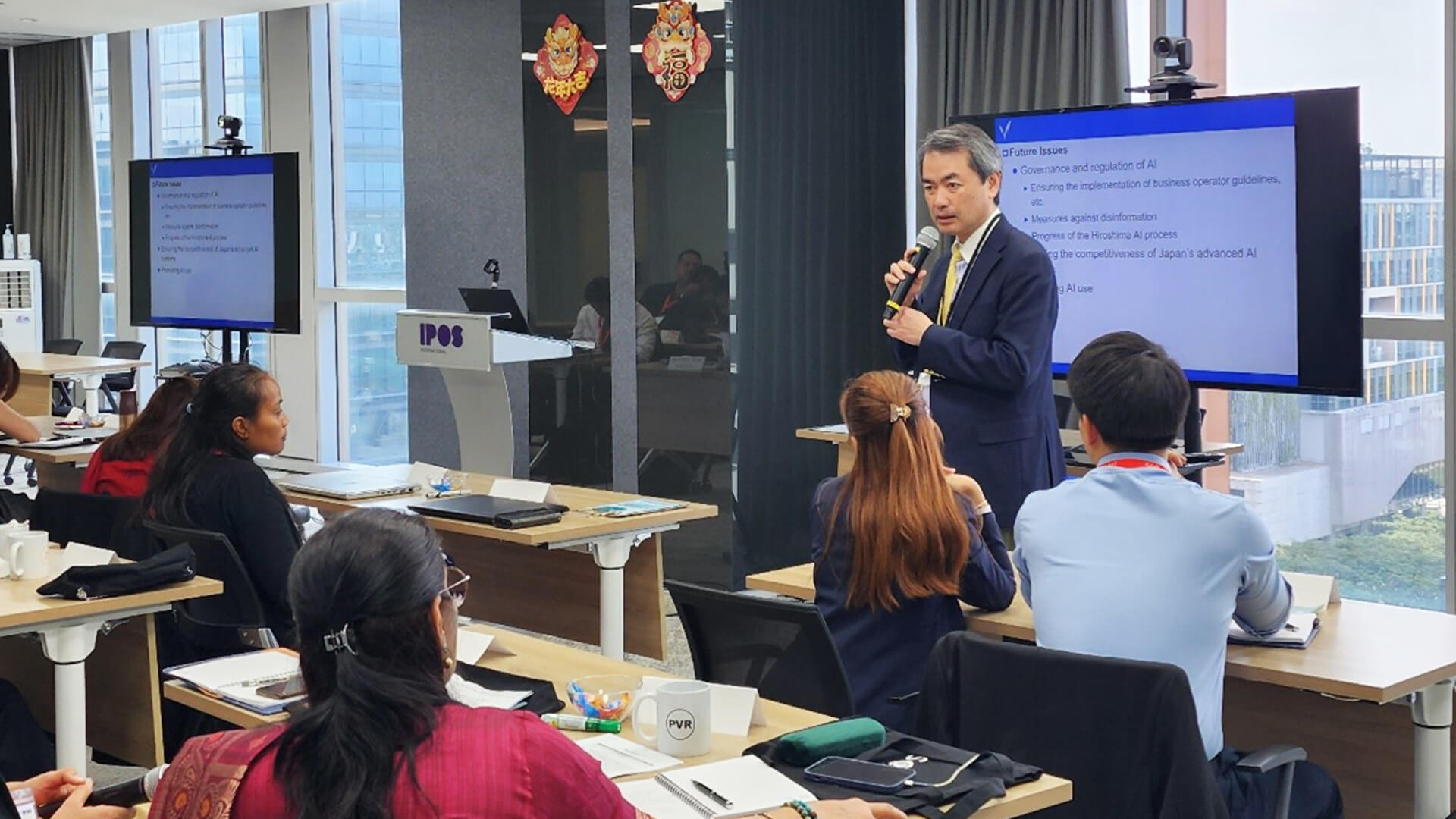
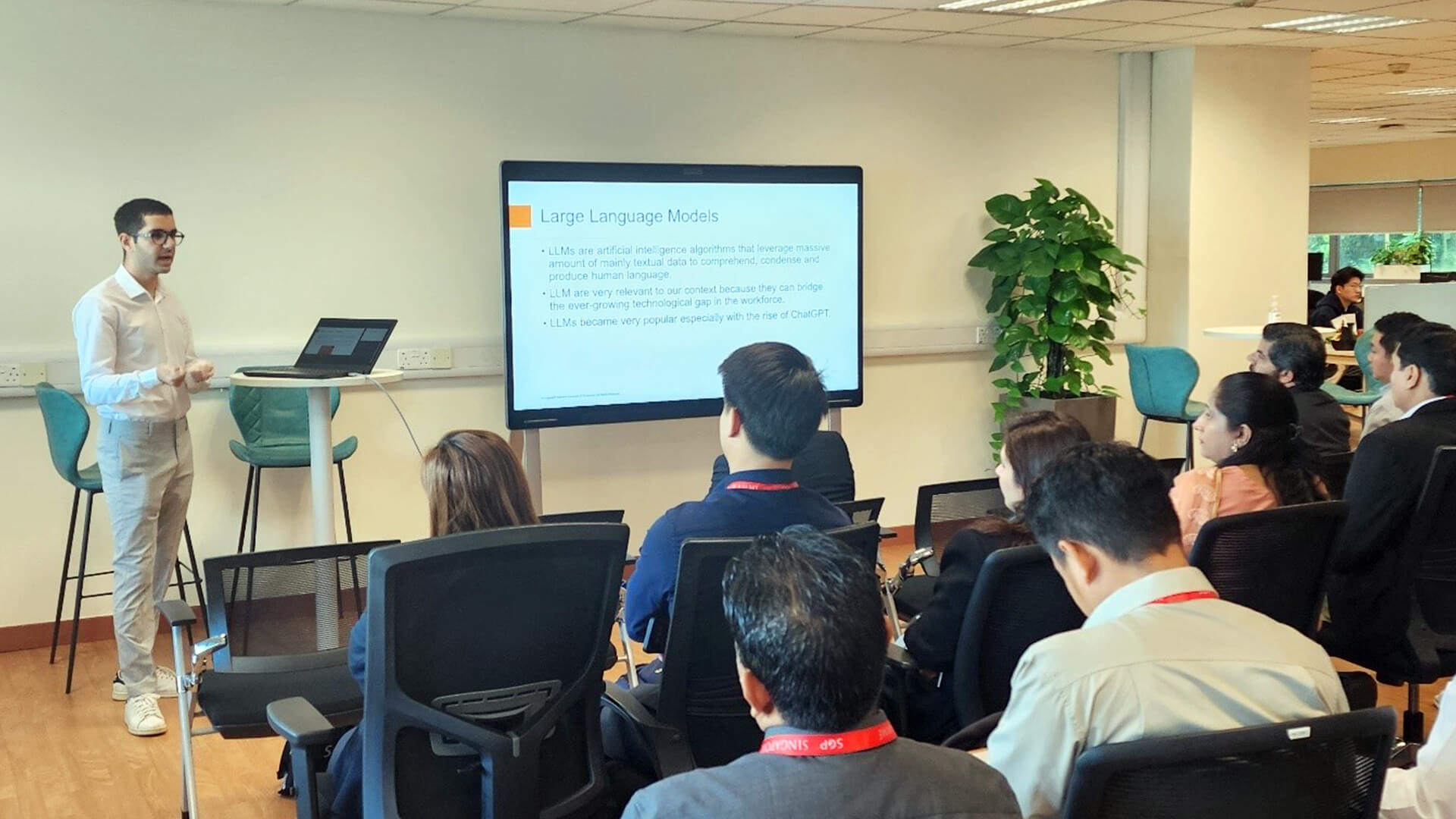
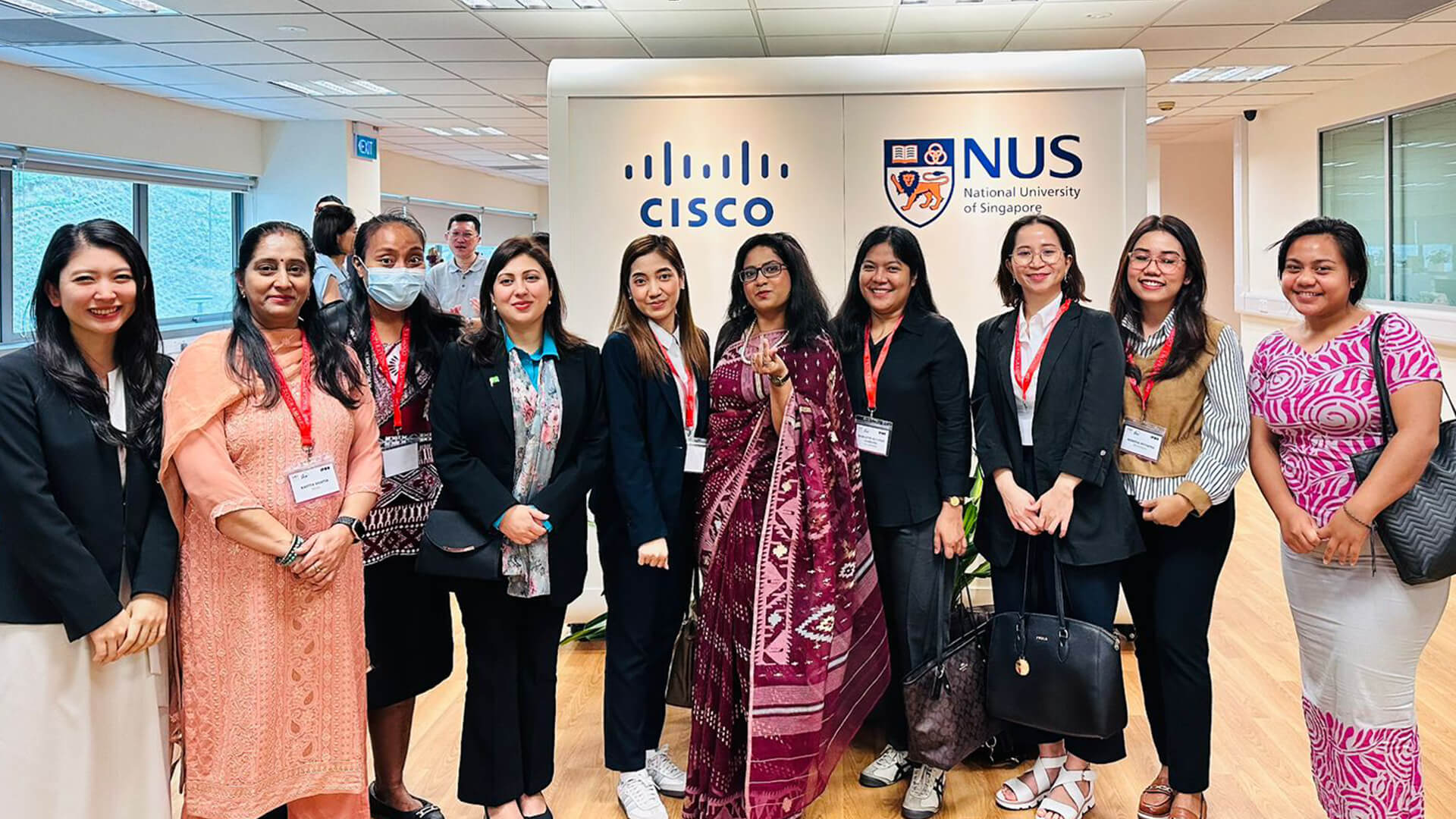
Course title
Fostering the Digital Economy through Artificial Intelligence and Data Governance
Date
26 Feb – 1 Mar 2024 (in-person)
Objectives
The increasing usage of artificial intelligence (AI) for various applications and the development of big data tools have allowed countries to benefit from opportunities brought by the digital economy. However, this has also led to challenges in areas such as safeguarding citizens’ privacy and protecting the intellectual property (IP) rights of businesses and citizens. Countries need to formulate effective AI and data governance frameworks to deal with such challenges effectively. The programme has been curated to enable the officers to cultivate an innovative mindset towards AI and data governance among government officials such that they can better formulate governance frameworks to maximise benefits from the digital economy.
Participant’s Profile
The programme was attended by 24 participants, mid-to-senior level government officials from 16 countries such as Bangladesh, Bhutan, Cambodia, Pakistan, India, Indonesia, Maldives, Nepal, Philippines, and Vietnam who are involved in developing the digital economy in their countries. Around half of the attendees hail from ICT/innovation-focused departments within their respective agencies.
About the engagement
The course was conducted under the Japan - Singapore Partnership Programme for the 21st Century (JSPP21), a collaboration between the Singapore Cooperation Programme (SCP) and the Japan International Cooperation Agency (JICA).
About the training programme
The meticulously curated program encompassed a diverse array of topics, ranging from the legal intricacies surrounding AI adoption and data transfer, to intellectual property issues within the Digital Economy, all expertly addressed by distinguished faculty members from IPOS International. In addition, we were honoured to host an esteemed academic from Japan’s Graduate School of Governance Studies at Meiji University, who delivered a compelling discourse on AI and Governance in Japan.
Our local university academics provided invaluable insights into challenges and regulatory considerations of the Digital economy and the latest developments in AI technology and its applications, while practitioners shared their expertise on blockchain, government AI initiatives, and their implications for governance. Participants were further tasked with preparing country presentations to facilitate the sharing of insights on AI and data governance practices in their respective nations.
To enrich their learning journey, participants embarked on three site visits, offering firsthand exposure to real-world applications and implementations of AI technologies.
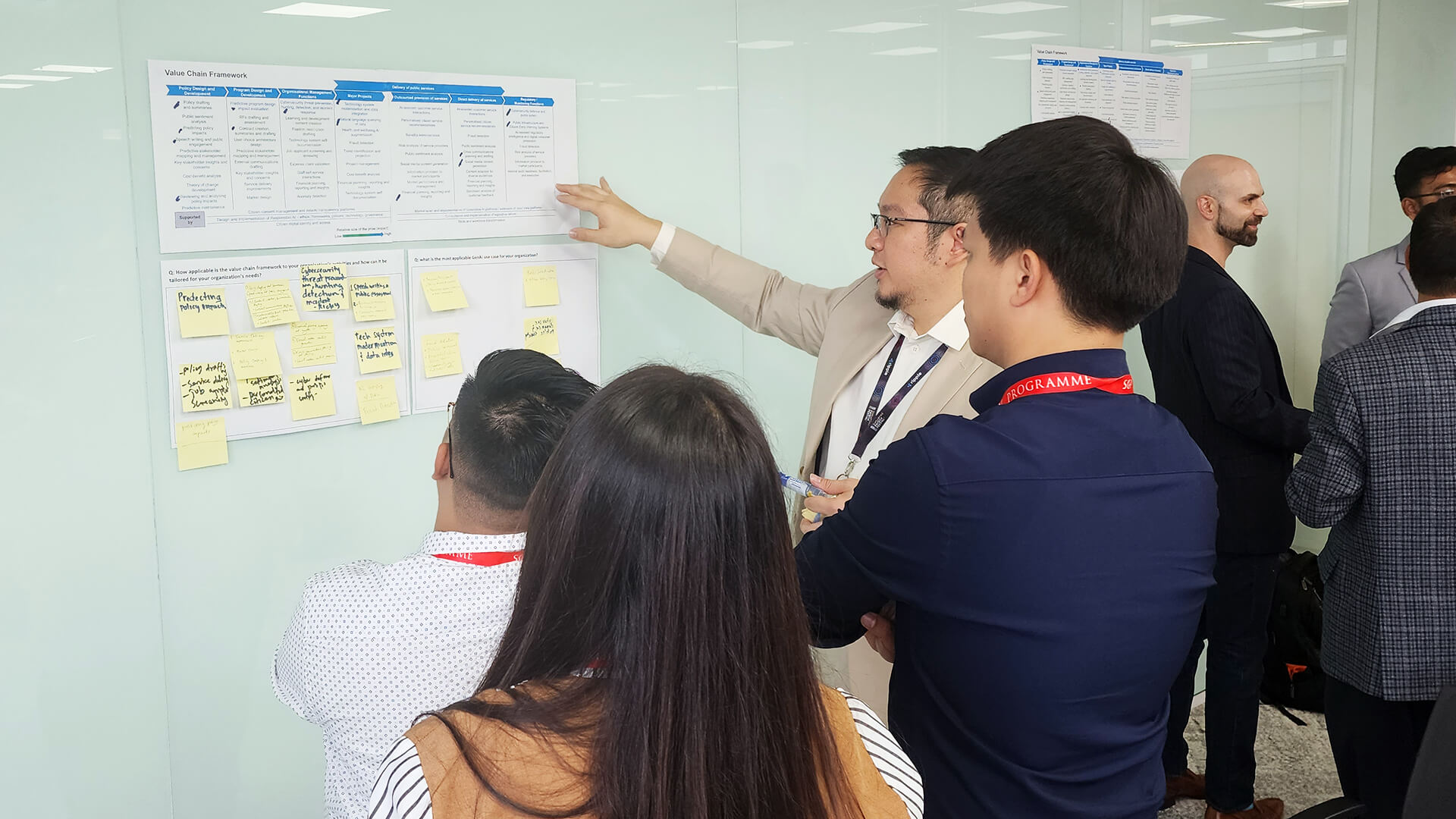
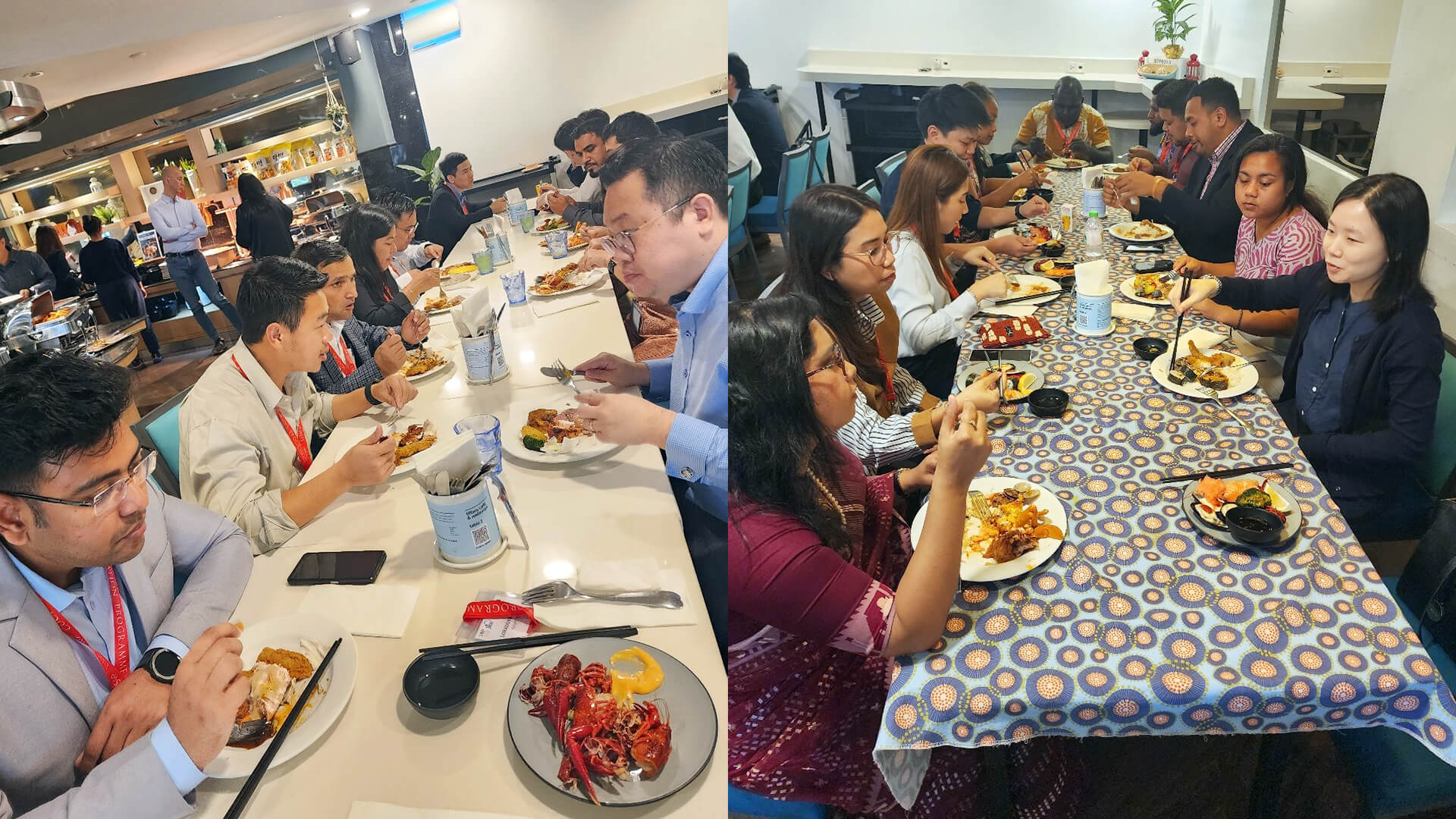
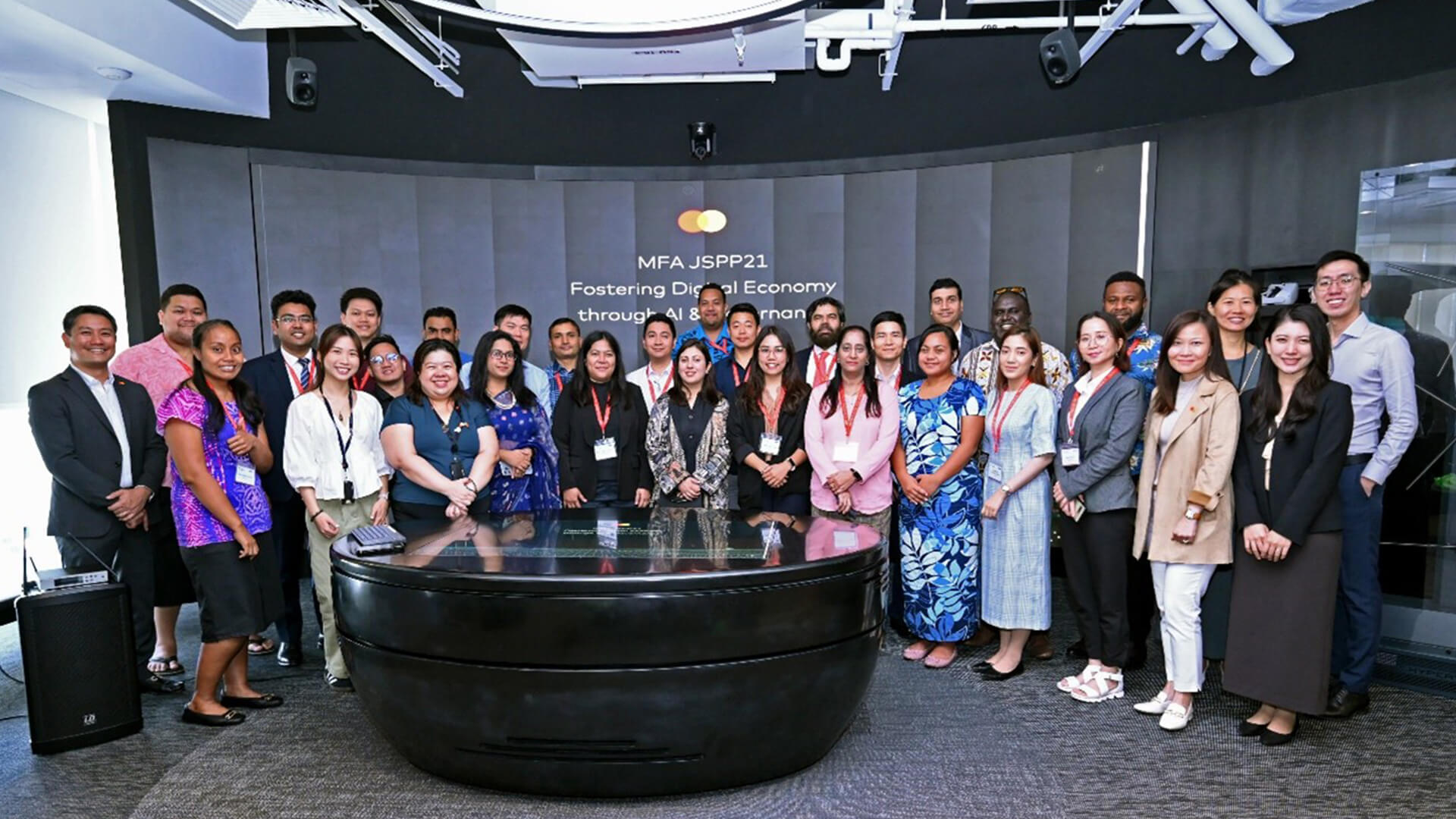
About Japan - Singapore Partnership Programme for the 21st Century (JSPP21)
As countries whose prime resources are their people, Singapore and Japan believe that human resource development is important for economic and social progress. With this mutual understanding, Singapore and Japan signed a Memorandum of Understanding in January 1994 to train participants from developing countries by sharing each country’s expertise and experience from their economic development under the Japan - Singapore Partnership Programme (JSPP).
To enhance ASEAN integration and share the two countries’ experience in their areas of expertise, both governments recognised, as areas of priority, training and capacity building for third countries in the fields of (a) security and peace, (b) addressing vulnerability, (c) private sector development, (d) connectivity, and (e) smart initiatives. Since 1994, Singapore and Japan have implemented close to 400 training courses for more than 6,500 participants in diverse fields such as public governance, trade promotion, climate change and environment, community policing, disaster management, maritime navigation, tourism, and urban planning.

